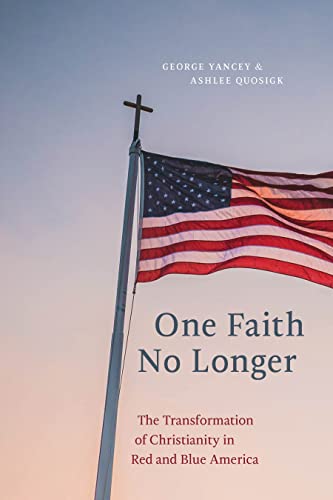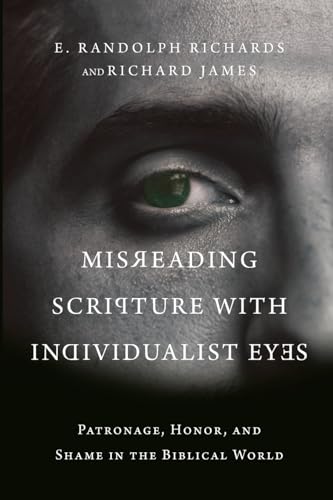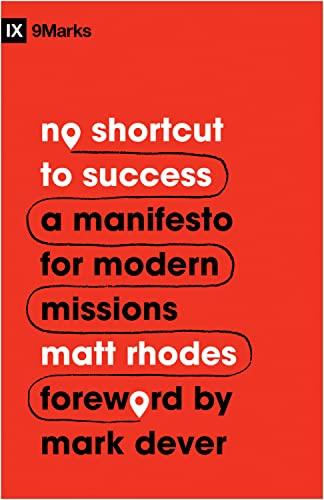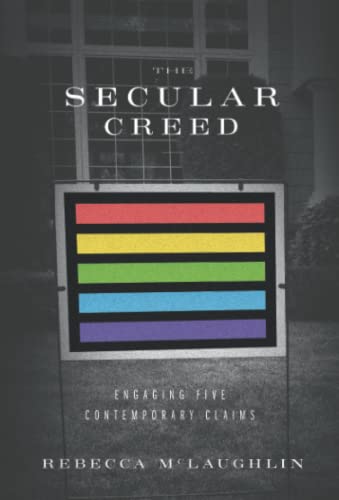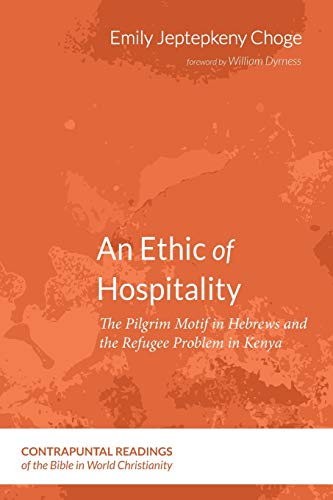Volume 47 - Issue 1
Caring Because You Don’t
By Daniel Strange“We have different gifts, according to the grace given to each of us … if it is to encourage, then give encouragement.…” (Rom 12:6)
Throughout its history Themelios has always been clear in its intended audience: an international and interdenominational journal aimed at theological students and pastors, though scholars read it as well. The journal has also strived to have a disciplinary breadth as stated by its first editor Andrew Walls in its very first edition in 1962: ‘the scope of Themelios is the whole of Christian theology: the entire field of the Christian pastor and theologian.’1
Far from being over ambitious, with the danger of falling between stools and pleasing no-one, Themelios, its successive editors, and its various publishing ‘homes’ have unapologetically attempted to keep together, because they belong together, domains which still often operate in different ‘worlds’—the ‘world’ of theological education (with its own worlds within worlds), and the ‘world’ of church pastoral ministry.
If Themelios wished to undertake one of the those branding and marketing exercises to interrogate itself, a model ‘profile’ of what the journal is about, who the journal is for, and what, by God’s Holy Spirit, the kind of men and women the journal wishes to form, then one needs to look no further than Rev. Melvin Tinker, who died in November at the age of sixty-six. Melvin had a long association with Themelios, contributing at least nine articles over the years which covered a wide variety of subjects and which always managed to integrate doctrine, biblical exegesis, philosophy, ethics, public theology and pastoralia.2 More than his written contributions however, Melvin was himself an exemplar. In the wake of his death, Kevin Vanhoozer called him the ‘consummate pastor-theologian’.3 I asked Phil Tinker, one of Melvin’s sons, for some personal reflections:
It would be a mistake to think that what made Dad a pastor-theologian was his writing of books, speaking at conferences, or writing scholarly articles. They were some of the ways he, in his particular way, fulfilled that vocation. Rather, if the task of the theologian is to lead the church in belief, action and worship faithful to the Scriptures in this day, this place, with all its challenges and questions, through the orthodox re-articulation of Scripture, then the good pastor is simply a theologian every time he steps into the pulpit. Writing books didn’t make Dad a pastor-theologian, being a pastor who knew the full extent of his job as a pastor did. He knew that his job in the pulpit and by the hospital bed was actually to give the God of the Bible to the people in front of him in a way that met them in their world, whether that be the world of secular Britain or the world of their immediate situation and pain. That is what true theology does—gives the God of the Bible clearly and coherently to the people of this time and place in a way that will change them.4
For Melvin, writing an article on secularisation for Themelios and preaching through Revelation to his church were not two separate tasks. Melvin thought deeply about secularisation because that is the world of his flock to whom he must proclaim the call of Revelation to stand firm. Not all pastors will write scholarly articles as Melvin did, but all pastors must be theologians in the truest sense of that term—speakers of reality-in-Christ to the church plagued by alternative realities: in that sense, Melvin ‘exemplified that a pastor-theologian isn’t some special kind of pastor, it simply is a pastor.’5 I hope and pray Themelios will continue to promote and produce a virtuous circle of orthodoxy, academic excellence in theology, and a grounded ministry orientation.
There have been many heart-felt encomiums since Melvin died. See if you can spot any recurrent themes. Don Carson writes, ‘when Melvin Tinker comes to mind, I instinctively identify him with Valiant for Truth. Yet that says too little. Yes, he was a stalwart defender of confessional evangelicalism, but he was also a clear preacher of the gospel. Yes, he wrote several compelling popular-level books, but he was first and foremost a pastor who loved his flock.’6 Paul Helm encountered Melvin as an Anglican vicar, noting ‘as he built a reputation as a communicator of the Gospel in Hull, two things stood about his character. One was his courage in the face of the media and erring critics, ecclesiastical and other. The other was his skill and gifts as vicar of St. John’s.’7 Carl Trueman notes that ‘Melvin might be the single best example of ‘ordinary courage’ (which is actually most extraordinary) I know.’8
Peter Sanlon knew Melvin well:
I first met Melvin when I was a teenager, becoming an evangelical by conviction. I heard him speaking and read some of his books. That was over 20 years ago. Melvin was obviously a busy minister—his growing church required oversight. His writing and speaking efforts were considerable. However, we stayed in touch over the years and became firm friends. He let me know that he prayed for me on Wednesdays. He urged me to do what he modelled—be passionate about people growing to love Jesus and seek to serve that goal by in-depth Word ministry and discerning engagement with the culture and secular learning. The power of Melvin’s ministry clearly did not reside in social power dynamics or cultural fads—it was a spiritual power that arises when theological and pastoral concerns are fused in a prayerful life. Many theologians have warned us of anaemic or lopsided Christianity—e.g., Mark Noll, David Wells, Dallas Willard. Melvin listened, learned and—I am most thankful—he embodied a healthy ministry praxis that impacted me greatly. You knew when you spoke with him you were engaging not just popular evangelicalism but benefiting from critical engagement with the best of Church History refined by the rigours of local church ministry.9
I trust you’ve noted that the theme of ‘courage’ comes through loud and strong. Melvin was, and was perceived to be, a fighter: a fighter for truth within his own denomination against theological liberalism, within conservative evangelicalism against a ‘classism’ and hierarchical snobbery, and within the broader culture against the ascendant secular and idolatrous worldviews in the West. He had a reputation. However, Melvin’s iconoclasm is not what I want to focus on directly (particularly as when it comes to the machinations and politics within the Church of England, I don’t, as a non-Anglican, feel qualified to comment.) Rather, I want to talk about Melvin as an encourager because this is how I knew him, and this is the particular characteristic for which I am thankful to God.
And here’s the thing: I didn’t really know Melvin at all, at least not in a personal capacity. I wasn’t part of his congregation in Hull. I met him a few times in person but we never hung out for extended periods. We didn’t even have solidarity as fellow Anglicans (I’m a Baptist). However, while I’ve been working within theological education, I can trawl back through twenty years of email correspondence (I’m not a great deleter!), and find unprompted notes from Melvin Tinker that popped into my inbox, both when I was in theological student ministry (and managing editor of the pre-TGC Themelios), and throughout my time teaching and leading in seminary. These booster injections of encouragement providentially always came at the right time. Such notes did not have as their purpose mutual back-slapping. This was not flattery, the massaging of egos designed to puffing up reputations, which, as we have all witnessed recently, are ruinous.10 Moreover, these were not long, small-talk chit-chats. Rather they were short, to the point, but genuine heartfelt ‘one-anothering’ encouragements which strengthened my resolve on the importance of theological education, and of the importance of the pattern of sound teaching within theological education. And all from someone I didn’t really know. These practices of ‘verbal care’11 have meant a lot to me, acting as energy gel pouches I’ve taken on board to keep me keeping on in my own race.
The relationship between Melvin’s courage and his encouraging is interesting, and it is something I asked Phil Tinker about:
I was wondering what the link between Dad as pastor-theologian and encourager might be. I was reading a favourite book of Dad’s, the letters of John Berridge, an Anglican who rocked the boat by doing irregular ministry in the 18th c. and offended fellow Evangelicals with his not playing by the rules and speaking in a way they wouldn’t. So here is a man courageously standing against the establishment, as well as fellow Evangelicals telling him he’s too radical and should toe the line more, and who is also a prolific letter writer, encouraging others. Of course! To encourage one must already be a person of courage. A person who has conviction and who sees others putting it on the line too will want to encourage them, perhaps to give the encouragement that they never received. And I see that in Dad. He was very keen to encourage those he saw as fighting the good fight, labouring at a worthy ministry without much wider support and who were fellow outsiders of the evangelical establishment. Courageous people encourage others. The encouragement of people who are all talk sounds hollow to us after a while. But a friend who has been burned for their courage and hung out to dry by their friends will be quick to draw alongside fellow fighters and outliers to spur them on and their counsel and comfort will come as a real grace to us.12
Courageous encouragement and encouraging courage. There’s a sense in which Melvin cared because he didn’t care. He was care-ful because he couldn’t care-less, and I thank God for this quality which I seek to emulate.
If this column is being read now by its target audience, then you might know fellow brothers and sisters in Christ who are feeling disheartened, discouraged and under pressure, perhaps in their theological studies, perhaps in their own church contexts. Given the model of Melvin, why don’t you finish reading, pray, and then go and be an encouragement to someone. Send that quick email, write that short note, make that quick phone call, knock on that door, arrange that coffee. Little gestures which will mean a lot.
I finish with Carl Trueman and what he called a ‘classic’ anecdote about Melvin:
In August 2016 I was in Schiphol Airport in Amsterdam, … when I suddenly heard my name called out. Turning round, I find myself face to face with Melvin and another young man. It turned out this man was Melvin’s curate and he was flying with him to South Africa to have him ordained by an Anglican bishop who actually believed the gospel. It was classic Melvin—he’d rather fly half way around the world at great personal expense than bow the knee to the local episcopal charlatan. I commented at the time that it would be both cheaper and more time-efficient for him simply to be a Presbyterian. Of course, he laughed, never one to take himself too seriously. So we chatted for a bit and then parted. I had no idea then that it would be the last time we ever met on this earth. Shalom, Melvin, shalom.13
[1] Andrew F. Walls, ‘Themelios—A New Journal’, Themelios 1 (1962): 1, https://biblicalstudies.org.uk/pdf/ifes/1-1_editor_intro.pdf.
[2] Tinker articles for the journal are as follows: ‘The Priority of Jesus: A Look at the Place of Jesus’ Teaching and Example in Christian Ethics’, Themelios 13.1 (1987); ‘Truth, Myth and Incarnation’, Themelios 14.1 (1988); ‘Purpose in Pain?—Teleology and the Problem of Evil’, Themelios 16.3 (1991); ‘Last Supper/Lord’s Supper: More than a Parable in Action?’, Themelios 26.2 (2001); ‘Evil, Evangelism and Ecclesiastes’, Themelios 28.2 (2003); ‘Living in a World Where Life Is Cheap: The Relevance of the Book of Deuteronomy and the Sixth Commandment for the Debate on the Sanctity of Human Life’, Themelios 29.1 (2003); ‘The Servant Solution: The Co-ordination of Evangelism and Social Action’, Themelios 32.2 (2007); ‘Friends: The One With Jesus, Martha, And Mary; An Answer To Kierkegaard’, Themelios 36.3 (2011); ‘Secularisation: Myth or Menace? An Assessment of Modern “Worldliness”’, Themelios 38.3 (2013).
[3] Peter Sanlon, ‘Melvin Tinker (1955–2021): A Consummate Pastor-Theologian Who Was Valiant for Gospel Truth’, Premier Christianity, 23 November 2021, https://tinyurl.com/2p88myc5.
[4] Personal correspondence.
[5] Personal correspondence.
[6] Tribute taken from Sanlon, ‘Melvin Tinker (1955–2021)’.
[7] Tribute taken from Sanlon, ‘Melvin Tinker (1955–2021)’.
[8] Personal correspondence.
[9] Personal correspondence.
[10] Cf. Proverbs 26:28; 29:5.
[11] Grant R. Osborne, Romans, IVP New Testament Commentary (Downers Grove, IL: IVP Academic, 2004), 327.
[12] Personal correspondence.
[13] Personal correspondence. I do need to note a lovely little biographical detail given to me by Phil Tinker. ‘Dad recently began to enjoy the work of John Webster (his sermons being a source of comfort and hope in his last weeks). Webster and Dad were born in the same hospital in Mansfield, exactly one week apart! As you will know, Mansfield [a little town in the UK], perhaps like Nazareth, is hardly known for producing the great and notable! And yet God had these two baby boys born there, a week apart, whom he would raise to serve his church in their own ways. Both gone to be with God in their 60s, earlier than we would have hoped, but leaving a legacy of humble, courageous service. These two men from a small English mining town never met on this earth, but now they worship together in the presence of God.
Daniel Strange
Daniel Strange is director of Crosslands Forum, a centre for cultural engagement and missional innovation, and contributing editor of Themelios. He is a fellow of The Keller Center for Cultural Apologetics.
Other Articles in this Issue
In the book of Kings, Elisha is the Spirit-empowered man of God who walks with God, represents God, and shows the way to covenant faithfulness through word and deed...
Baptists provide an excellent window into the American identity during the antebellum period...
This article explores Colossians, a letter in which Paul says a considerable amount about work...
This article offers a reading of Nicholas Wolterstorff’s objections to the doctrine of divine simplicity, which has seen a kind of rebirth amongst both Catholic and Protestant theologians in recent decades...
The Targums were not translations for the Aramaic-speaking masses who were ignorant of Hebrew...


